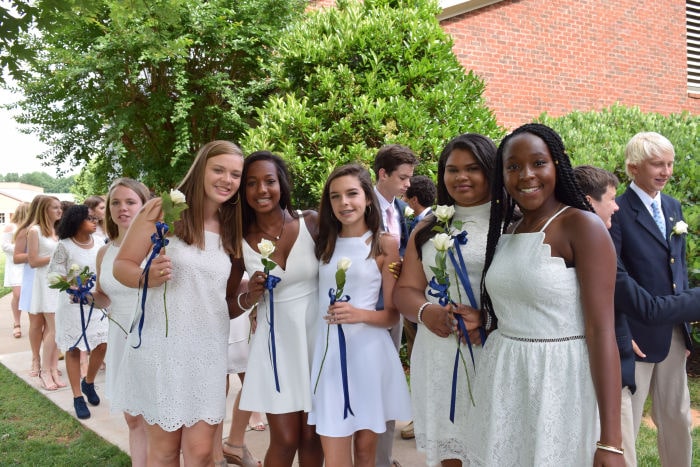By Guest Blogger Kelen Walker, Admission Director, Canterbury School
As the admission director at an independent school, I believe that independent schools offer an outstanding education that’s worth the cost. I’m also the mom of a first grader and a fourth grader, and went through the process of trying to choose the right school for my children.
We have a lot of options in Guilford county: public schools, magnet programs, charter schools, church-affiliated schools, independent schools and home schooling. The choices can seem overwhelming!
It’s easy to do online research, but there’s no substitute for visiting a school. Schedule a tour and go prepared to observe and ask questions. Visit several schools so you can make comparisons.
Here are some things to consider when you’re looking for the right fit for your child:
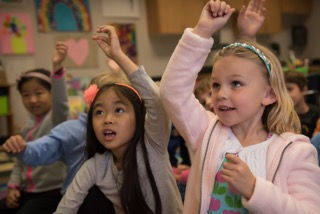 Class size. A low student-to-teacher ratio means a teacher can give more attention to individual students and really get to know each child. Children who feel safe and loved are more comfortable trying new things. Middle school students, who are in a period of rapidly changing social, emotional, and physical development, especially benefit from a small learning community that allows them to develop close relationships to teachers, other adults, and their peers.
Class size. A low student-to-teacher ratio means a teacher can give more attention to individual students and really get to know each child. Children who feel safe and loved are more comfortable trying new things. Middle school students, who are in a period of rapidly changing social, emotional, and physical development, especially benefit from a small learning community that allows them to develop close relationships to teachers, other adults, and their peers.
Most independent schools have small class sizes and assistants in the lower grade levels. Charter schools have no limits on class size. North Carolina public schools cap class size depending on grade level.
Funding. Public schools get funding from the government; church-affiliated schools from a church or diocese. Some charter schools are for-profit organizations. Independent schools are mission-driven, not-for-profit organizations. Governed by a board of trustees usually made of parents, alumni, and community leaders, an independent school is just that – independent. That means the curriculum is not driven by state mandates or standardized testing but based on the school’s mission and values.
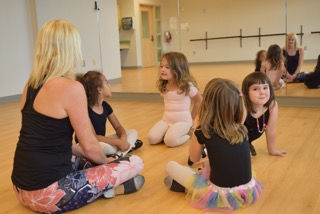 Consider teacher qualifications. Does the school hold teacher workdays for professional training and development? How many teachers have advanced degrees? Ask about a teacher’s years of experience. In North Carolina, not all teachers in a charter school have to be licensed, as they do in a public school. On your visit, observe how teachers interact with the students. Is the teacher enthusiastic? In control? Warm and welcoming?
Consider teacher qualifications. Does the school hold teacher workdays for professional training and development? How many teachers have advanced degrees? Ask about a teacher’s years of experience. In North Carolina, not all teachers in a charter school have to be licensed, as they do in a public school. On your visit, observe how teachers interact with the students. Is the teacher enthusiastic? In control? Warm and welcoming?
Academic program and outcomes. How does the school measure progress? How often does the curriculum change to incorporate new research and best-practice teaching? While testing isn’t the be-all of academics, it is an indicator of what students are learning. Compare end-of-grade and end-of-class assessments. Those numbers are available for publically funded schools through the state board of education at ncpublicschools.org. Independent schools should be willing to give you that information.
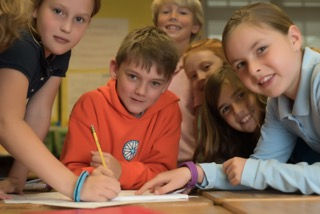 School configuration. Schools come in all sizes and shapes. There are elementary, middle, and high schools, PreK-8th grade schools, PreK-12th grade schools.
School configuration. Schools come in all sizes and shapes. There are elementary, middle, and high schools, PreK-8th grade schools, PreK-12th grade schools.
At Canterbury School, we believe that our PreK-8th grade setting uniquely prepares children for academic success. PreK-8th grade schools can focus time, energy, and resources on the unique developmental needs of early childhood and early adolescence. Without a high school on campus, younger children don’t feel any pressure to grow up too soon, and middle school students are treated as and expected to be leaders.
When a child is entering kindergarten, it’s impossible to predict the best high school for that child, so look at what’s best for your child right now.
Facilities. How many books are in the library? Is technology readily available? Are the buildings safe and in good repair? Look for children’s work on the walls and engaging materials that are age-appropriate in the classroom.
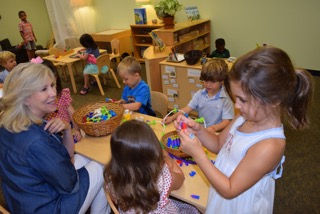 Educational philosophy. What is the mission and philosophy of the school? A whole child education nurtures a child’s mind, body, and spirit. A challenging academic program should develop fundamental skills in reading, mathematics, writing, science, and social studies. Young children also need the opportunity to move in physical education classes, recess, and when walking around campus. A strong arts program encourages students to be divergent, creative thinkers. Making time for children to explore their personal spiritual beliefs and to be of service to others rounds out a whole-child education. Children need to know how to get, process, and share information, but just as importantly, they need to be self-aware and compassionate.
Educational philosophy. What is the mission and philosophy of the school? A whole child education nurtures a child’s mind, body, and spirit. A challenging academic program should develop fundamental skills in reading, mathematics, writing, science, and social studies. Young children also need the opportunity to move in physical education classes, recess, and when walking around campus. A strong arts program encourages students to be divergent, creative thinkers. Making time for children to explore their personal spiritual beliefs and to be of service to others rounds out a whole-child education. Children need to know how to get, process, and share information, but just as importantly, they need to be self-aware and compassionate.
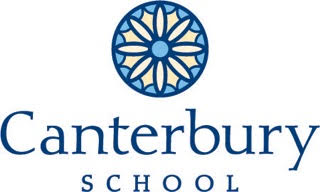 Parent Involvement. Ask if there is an active parent association and if parents are welcome to volunteer at the school.
Parent Involvement. Ask if there is an active parent association and if parents are welcome to volunteer at the school.
Cost. Don’t assume independent schools are too expensive. Many independent schools offer need-based financial assistance or indexed tuition and payment plans. Talk to the admission office about your options.
Overall, think about what’s important to you and how you think your child might learn best. A good educational foundation will prepare a child for success in high school and beyond.
*Sponsored by Canterbury School

